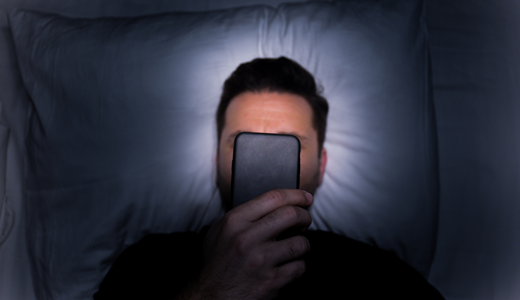Finally, I thought.
Everyone was finally in bed at the end of a long day. But I wanted just a few more minutes to wind down. So what did I do? I picked up my phone, of course.
I know, I know, doctors say you shouldn’t be looking at screen within half an hour of going to bed. It can interfere with our sleep, “waking up” our brain via blue light even if we’re physically exhausted. (And I was.) But I wanted to check the news. The markets. Some of my go-to websites for my various interests. What was happening at Broncos training camp. Etc.
And, sure enough, it took me a while to get to sleep afterward. Seems like those researchers are probably right, even though I don’t want to admit it.
Smartphones and sleep. You wouldn’t think there’d necessarily be a correlation between the two. After all, you can’t use your phone when you’re sleeping, right?
But as smartphones insinuate themselves ever more deeply into the chronological nooks and crannies of our daily routines, some folks are indeed looking at the connection between how we use these devices and how they’re impacting our sleep. After all, too little sleep is an issue that correlates with a host of other health concerns, both physical and mental.
In late May, Common Sense Media released its latest tech-focused research report, “The New Normal: Parents, Teens, Screens, and Sleep in the United States.” And though we may typically think of screen time as an issue that teens and tweens are dealing with, it looks like it’s an issue for those of us who just want to “wind down” a bit before bed with or favorite pixelated platform as well. Sixty-one percent of parents and 70% of kids check their phones within that 30-minute window before bed.
Remember how I said we can’t use phones and sleep at the same time? Well, that’s technically true. But more and more and more of us are making sure that the gap between sleep and staying connected is as small as possible. Common Sense Media found that 62% of parents sleep with their phones within an arm’s reach. For kids, that percentage is quite a bit smaller (39%), but that’s likely because 29% of them are sleeping with their phones in their beds with them.
Why? To make sure that they don’t miss middle-of-the-night social media notifications. Slightly more than one in three teens, 36%, check their mobile phones at least once in the night. But parents, you’re not off the hook: 26% of us do the same thing.
The study also looked at some broader attitudes among parents and youth when it comes to smartphone usage. More than half of parents (52%) admit that they’re spending too much time on their phones. Almost the same percentage of teens, 47%, think they spend “the right amount of time” on their mobile devices.
When it comes to teens and parents evaluating each other’s smartphone usage, both groups are critical of the other: 38% of teens think the parents are addicted to their mobile phones, while 61% of parents say the same thing about their children. As for self-evaluation, 45% of parents admit feeling addicted, compared to 39% of their children.
Those stats are pretty sobering. Surprisingly, though, a majority of both groups (55% of parents and 72% of teens) say that their “use of mobile devices has no impact on their relationships with each other.” Smaller percentages of parents and youth, 28% and 9%, respectively, thought that their phones were hurting their relationships with each other.
I confess, I’m a stat guy. I’m fascinated by studies like these. And this one, in particular, indicates that smartphone use is impacting important areas of our lives, from our sleep habits to our closest family relationships. And in most cases, these researchers found these impacts to be true in a majority of families, no matter what age we’re talking about.
But at the end of the day, I’m more than a statistic. And so are you. We’re people who live in proximity with spouses, children and parents. And what truly matters here isn’t a national percentage, but what’s going on in your house, in your relationships.
Looking at my own habits, well, there’s room for improvement. And studies like this one can serve as a prod to remind me that just because I feel like I’m entitled to a little “me time screen time” at the end of the day, that might not be what’s best for my mind, body and relationships with those I live with and love the most.






Recent Comments